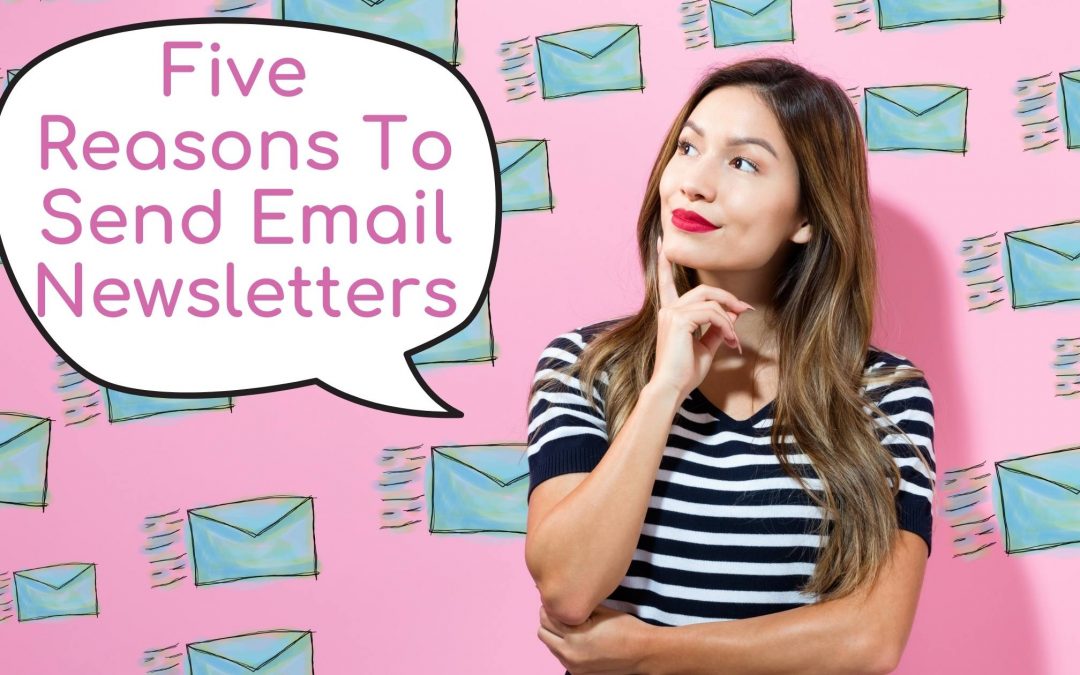Here are five compelling reasons to send email newsletters and collect subscriber details and why they are important for your business.
You may be asking if Is there any point in collecting subscribers and contact details when they already follow your social media business accounts?
Why not review this list to find why it is such a good idea
- Control of data. Once you have collected contact details with consent, you are now the owner of this data. Whereas technically Instagram, Facebook and the other social platforms are the owners of your follower’s details. If there was ever a problem with your social media account, you could lose access to your followers. However you would still have your subscriber’s details to continue to engage with them.
- Not all your customers may be social media users. Sending a regular email may be the only opportunity for them to see your products or content. Although most of my friends are on social media, I still have a few who do not have any accounts whatsoever. But they are lovely people and the sort who actively support small businesses.
- Extensive social media users may not see your posts. On the other hand, some people follow a huge number of accounts on Facebook and Instagram, so they never get through everything in their feed. This is because what they see will be very much influenced by the algorithms. Even if they are a follower of your account, there is a chance that they won’t see your posts. Whereas your email sent straight to their inbox may get their attention.
- Email newsletters have higher click rates. Recent research shows that email open rates and clicks from emails are much higher than those from social media posts.
- Regular email newsletters remind your clients that you are still there offering your services and products. If you are a small brand, clients who have used your business before may need reminding about your latest offerings and why they should buy from you. An email is lovely way to remind them.
Lastly, the small print …
Remember to follow GDPR and data regulations appropriate for your region in the world And always ask for permission to save details, consent to marketing and give email recipients the option to opt out.
I hope you found this list of reasons to send email newsletters really useful for running your business. You may also find this helpful too.

